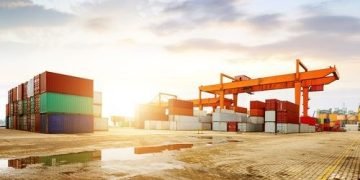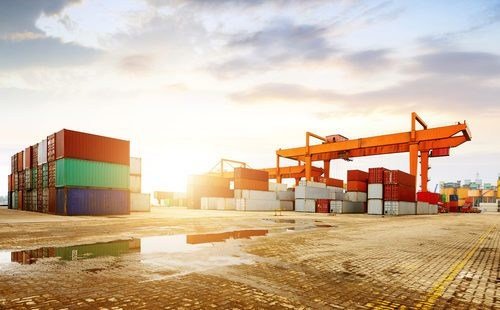By Maria Kalamatas | The Logistic News
April 11, 2025
In a move that underscores the accelerating digitization of Southeast Asia’s logistics sector, GL Terminal, a key bonded logistics provider in Indonesia, has acquired a 30% equity stake in Envilog, a fast-growing digital platform specializing in container flow management. The deal, finalized in March 2025, positions both companies to lead the next wave of supply chain modernization across the Indonesian archipelago and beyond.
A Merger of Physical Scale and Digital Speed
Based in East Jakarta, GL Terminal brings extensive bonded warehousing and inland depot infrastructure to the table, while Envilog offers a fully integrated software suite—Envi-Customs, Envi-Port, Envi-Truck, Envi-Depot, and Envi-Bonded—designed to digitize and simplify the traditionally paper-heavy operations of containerized trade.
“This partnership is a turning point for Indonesia’s logistics sector,” said Paul Good, Chairman of GL Terminal. “By aligning our physical footprint with Envilog’s smart technology, we are creating an ecosystem that is faster, more visible, and more efficient—across customs, ports, trucking, and depot flows.”
Envilog’s platform already connects with five of Jakarta’s major port terminals and is integrated with Indonesia’s Ceisa 4.0 customs system, providing stakeholders with real-time visibility on cargo status, booking confirmations, and automated gate-in/gate-out clearances.
Bridging Fragmentation in Southeast Asian Supply Chains
The deal addresses a longstanding challenge in Indonesia: logistics fragmentation. With thousands of islands, dozens of ports, and multiple layers of documentation and compliance, moving containers efficiently has often required significant manual coordination and time delays.
Envilog’s CEO and Founder Yanti Agustinova, who launched the platform in response to these exact inefficiencies, believes the collaboration with GL Terminal is a game-changer. “Our mission is to digitize the entire container journey—from bonded zones and customs to terminals and final delivery. With GL Terminal’s backing, we now have the operational muscle to scale that vision nationally and regionally.”
Envilog’s planned expansion includes strategic rollouts in Surabaya, Semarang, and Belawan, with future ambitions to enter Malaysia, Thailand, and the Philippines, where similar logistical hurdles persist.
Enabling End-to-End Logistics for Importers and Exporters
The GL–Envilog partnership offers importers, exporters, and freight forwarders a seamless interface that connects booking systems, customs declarations, depot inventory, and truck dispatch in one ecosystem. This consolidation is expected to:
-
Reduce container dwell time at ports
-
Lower manual processing errors
-
Improve turnaround times for first-mile and last-mile logistics
-
Enhance regulatory compliance across bonded movements
“It’s not just about digital transformation—it’s about operational orchestration,” noted Rina Prasetyo, a supply chain consultant with IndoTrade Analytics. “What GL Terminal and Envilog are building is a logistics nerve center for Indonesia’s import/export economy.”
A Template for Regional Replication
As Indonesia solidifies its role as a manufacturing and export hub in Asia-Pacific, the need for smarter logistics solutions is more urgent than ever. Analysts suggest this joint venture could become a template for port–tech collaborations across emerging markets, especially in economies balancing rapid industrial growth with legacy infrastructure challenges.
Moreover, the investment signals investor confidence in Indonesia’s digital logistics startups, opening the door for further capital inflows and partnerships in the sector.
Looking Ahead
Both companies have committed to continuous platform development, including API integrations with freight forwarders, AI-based customs clearance recommendations, and carbon tracking modules to align with future ESG mandates.
“Digitizing logistics is not a luxury—it’s a necessity,” said Agustinova. “Together with GL Terminal, we are turning that necessity into a competitive advantage for Indonesia.”
Maria Kalamatas is a senior correspondent at The Logistic News, specializing in digital supply chain transformation, port logistics, and Southeast Asian trade infrastructure























